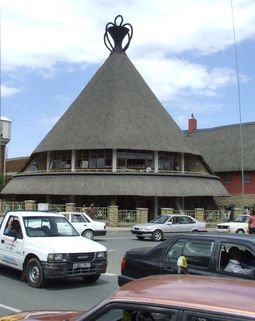The Kia Sorento Adventure Will Continue
Over the period of two days, we covered and over 1000 kilometres on a range of roads, included rutted provincial highways, several kinds of dirt tracks, and others that we hardly classified as roads at all.
We got at Hilton, where we were going, far too soon after that. By proving itself on the trickiest routes, it distinguished itself as an excellent all-around family SUV. The African market has some of the highest worldwide growth potential. The fact that international automakers are aggressively developing facilities in the area suggests that it has the potential to enhance auto production. In addition, there are major vehicle manufacturing and assembly operations in South Africa, Algeria, Morocco, and Egypt.
Principal Market Trends
Government programmes and a strong economy should be helpful for the car industry.
The African market has a lot of space for growth. Despite having 1 billion inhabitants, the region only contributes to 1% of global new automobile sales. 85% of the new cars sold internationally are also sold in South Africa. African manufacturers are projected to benefit from improvements and regulations intended to boost the continent's automotive sector. Ghana and Morocco are anticipated to play significant roles in these regions, which are expected to fuel growth through 2023.
Morocco's integration into the global economy was aided by the adoption of numerous agreements for free trade with the European Union and the United States. Therefore, Nissan is the sole foreign automaker producing automobiles there until Volkswagen enters the market in 2019.
The Continent's Largest Vehicle Market Is Anticipated To Be In South Africa
South Africa has the largest automobile industry in the area. The 355,378 units sold this year represent a 2.7% reduction from the 365,000 units sold in 2018.
According to the South African National Association of Car Makers, car sales in South Africa will decrease by 29.1% in 2020. The country acts as an export base for passenger cars to various other continents, particularly Europe. In January 2021, export sales rose for the second month in a row, reaching 22,771 autos, an increase of 6,468 units or 39.7% from the 16,303 vehicles sold in the same month the previous year. Major OEMs are making investments in the country from all over the world. For instance,
April 2019
In order to expand its car export operations, Ford Motor Company of Southern Africa (FMCSA) announced in April 2019 that it was putting a multi-port strategy into place.
The first consignment from Port Elizabeth to European markets consisted of 1,000 locally made Ford Rangers. Nissan also disclosed that it would spend ZAR 3 billion upgrading its Rosslyn, Pretoria manufacturing for the creation of the pickup truck's replacement.
There are still a lot of challenges facing the country's auto sector, including fierce competition from the used car market, weak domestic demand made worse by limited household resources (even with low borrowing rates), and high unemployment. However, given the trends and advancements mentioned above, it is predicted that the market under consideration would keep growing over the projection period.
Increased Competition
The leading automakers in Africa are Volkswagen AG, Toyota Motors Corporation, Holding company Renault (including Dacia Sales), Daimler AG, General Motors Company, Hyundai Car Maker, and Isuzu Motors.
Manufacturers are Concentrating on Company Development Tactics
Examples include: Nissan Africa, Middle East, and India (AMI) presented a comprehensive four-year strategy for the region in June 2020 as a part of the company's Global Reform Agenda.
With the worldwide shift toward prioritizing, focus, and reduction, the plan fits in extremely well. A region that accounts for around 10% of the worldwide car market is the centre of the introduction of key models and technology.





